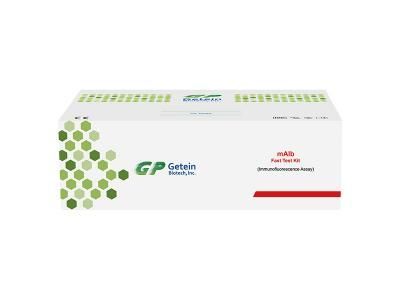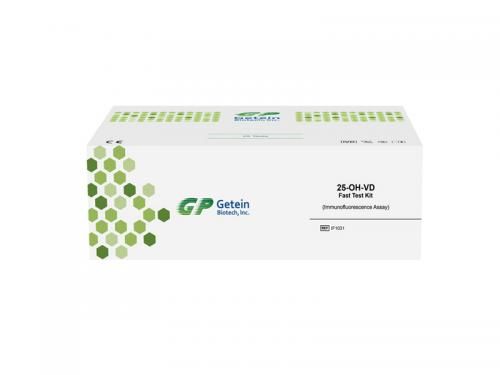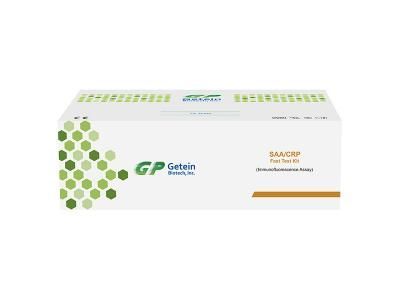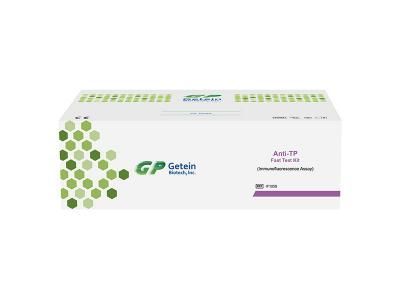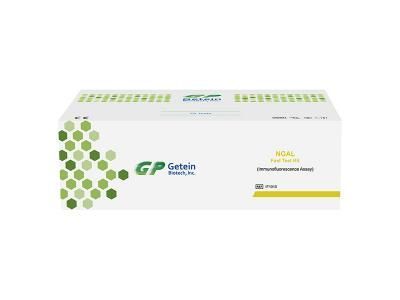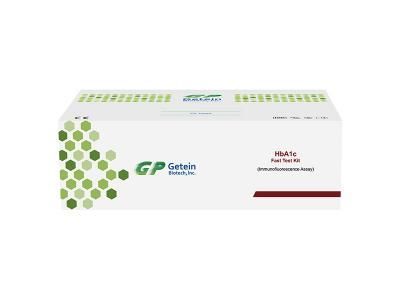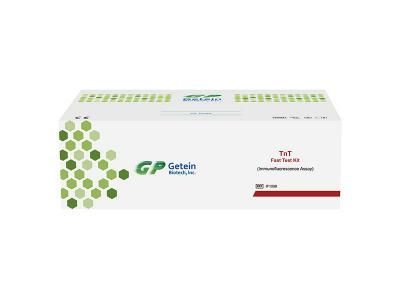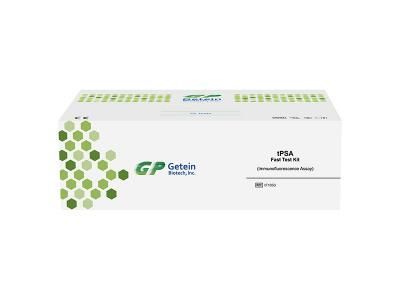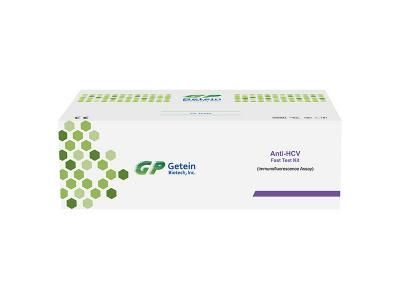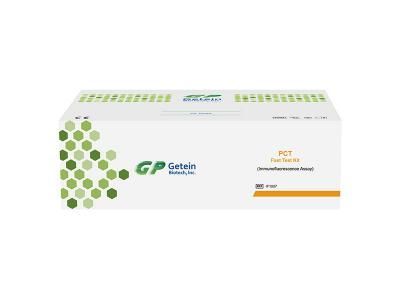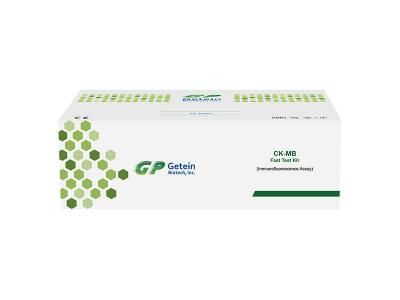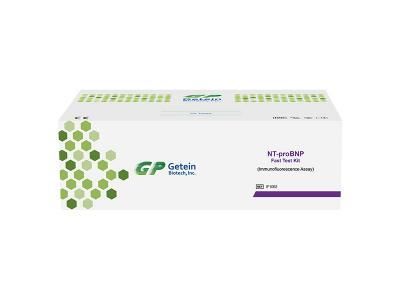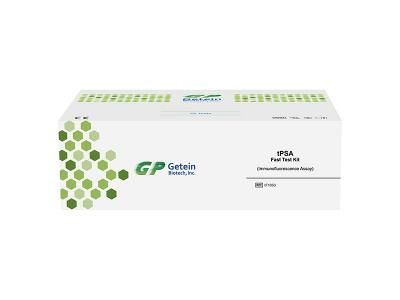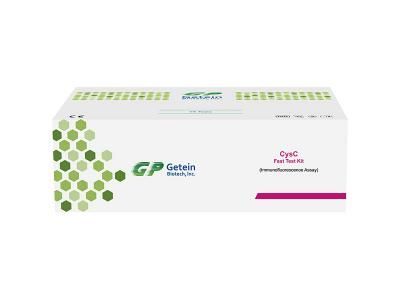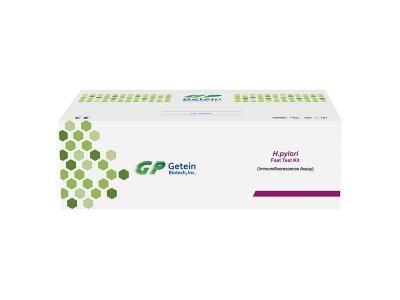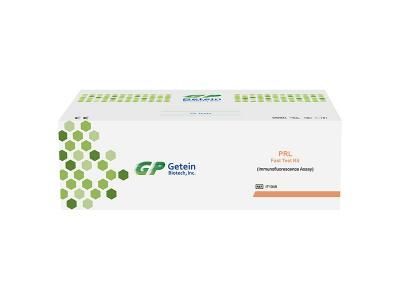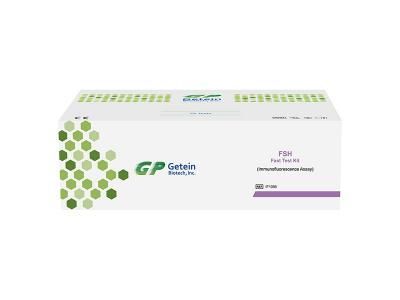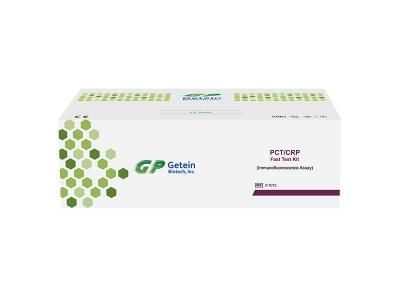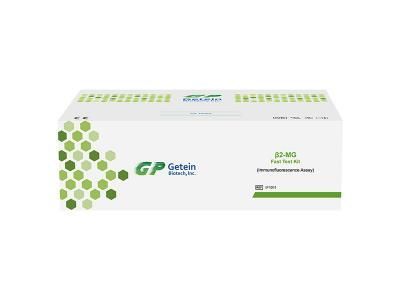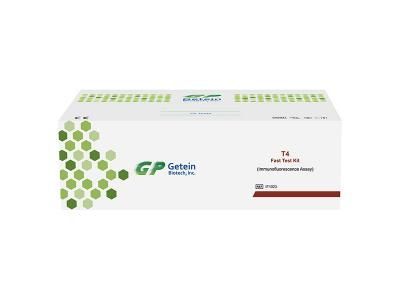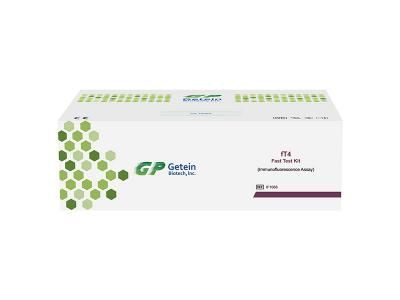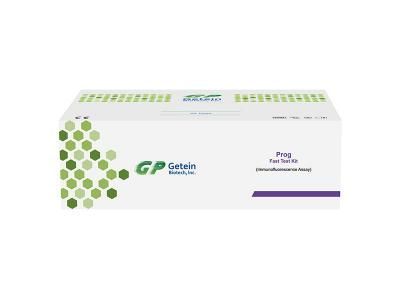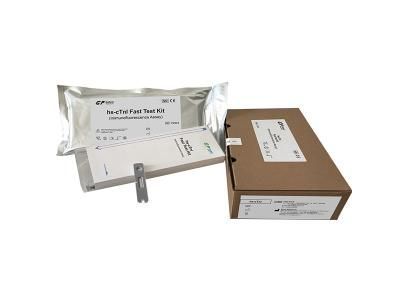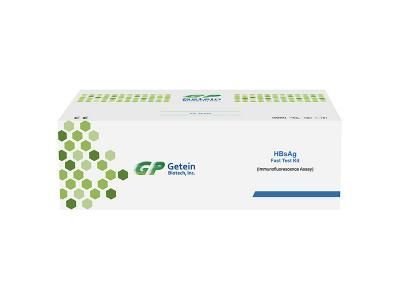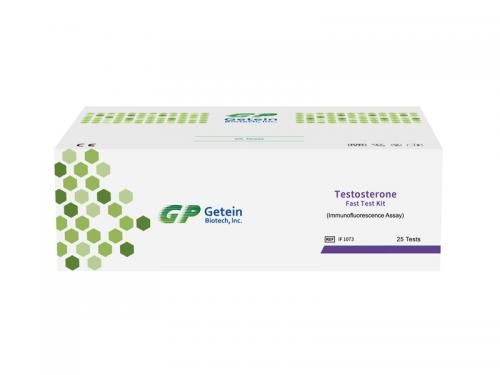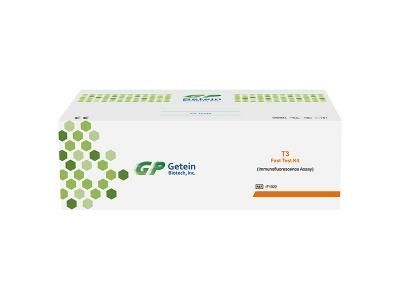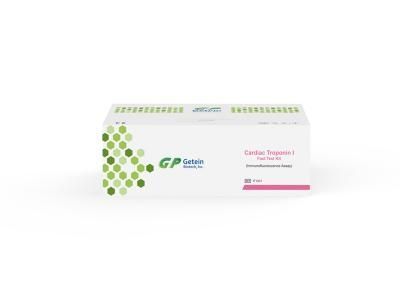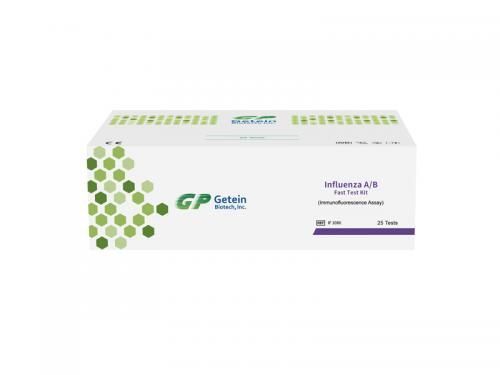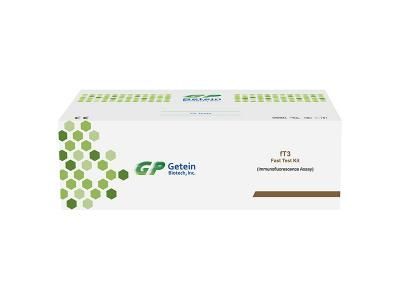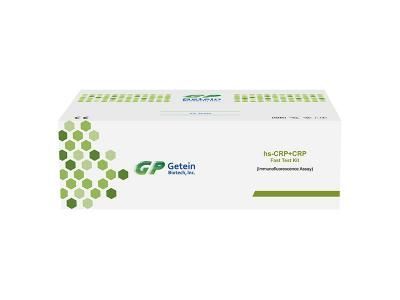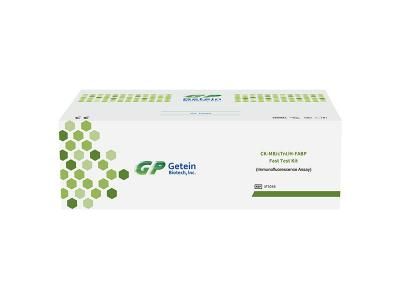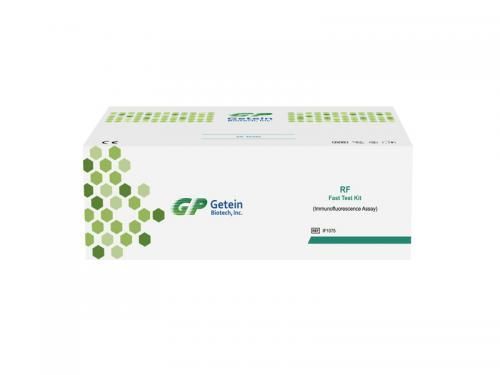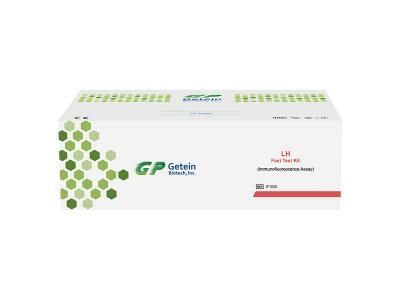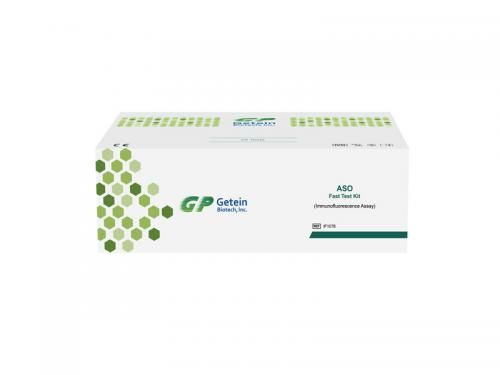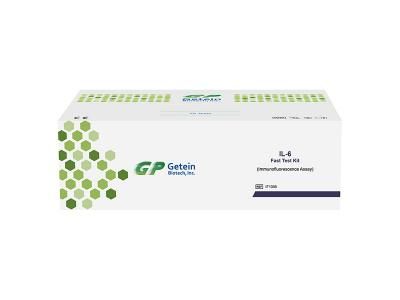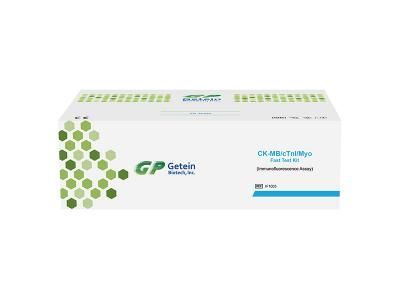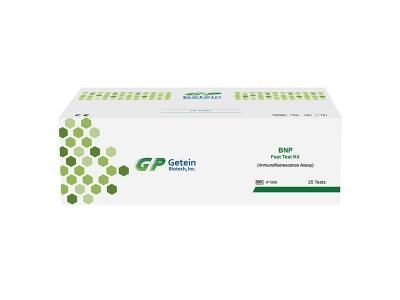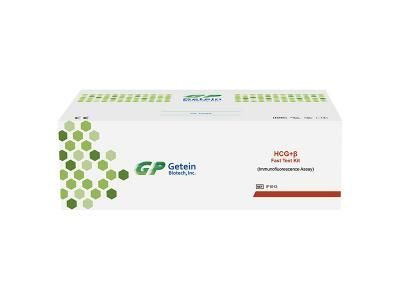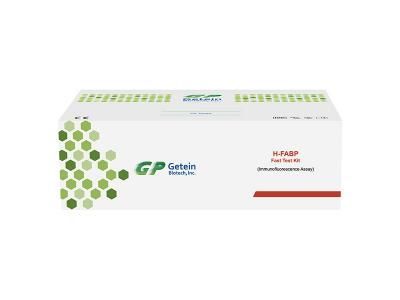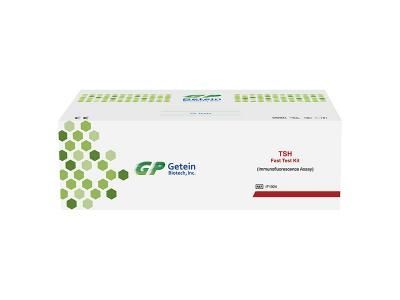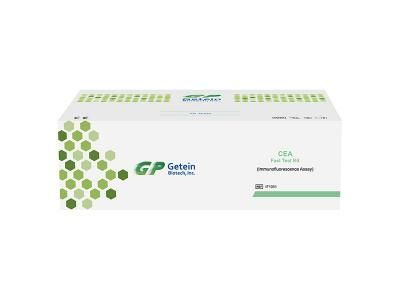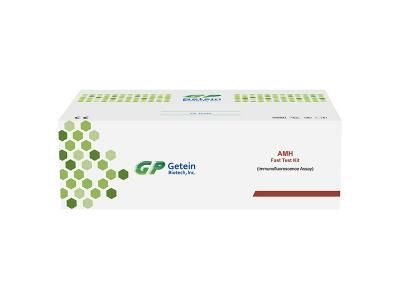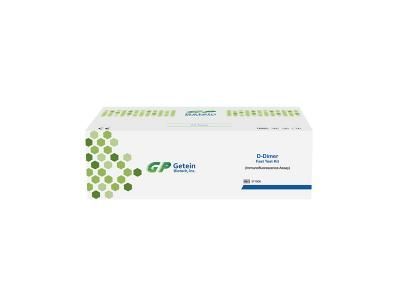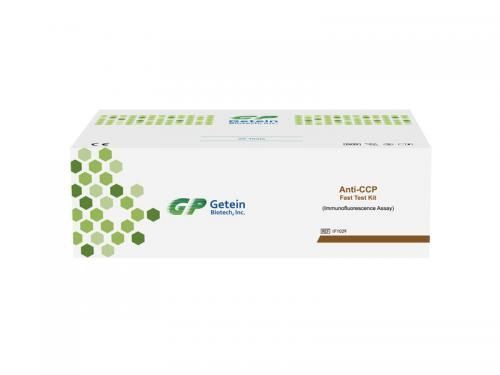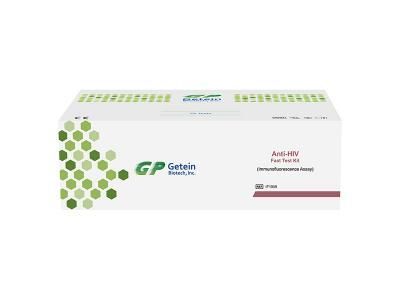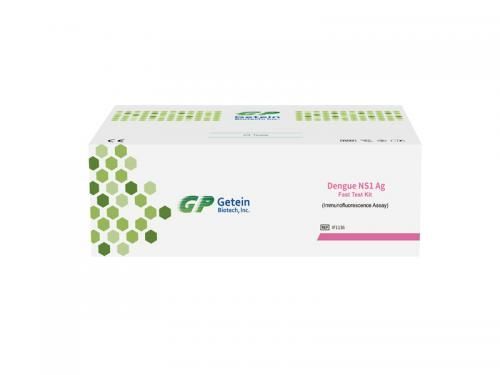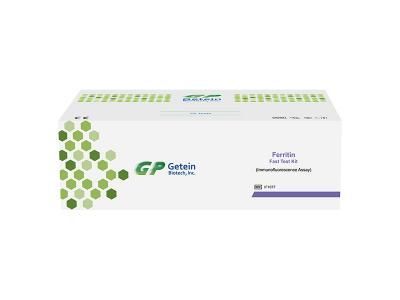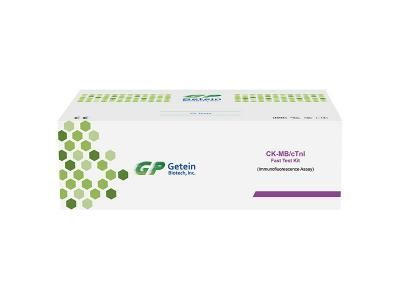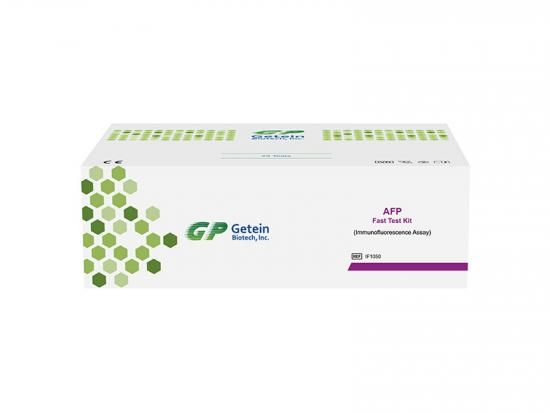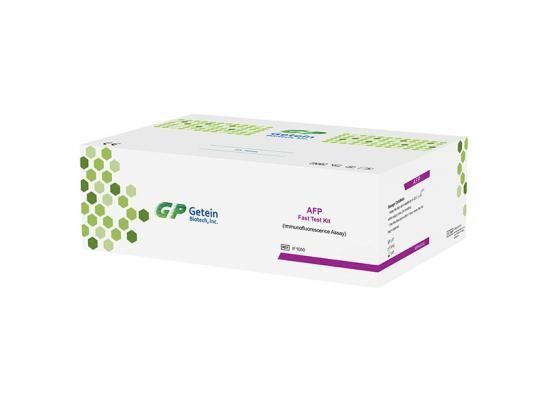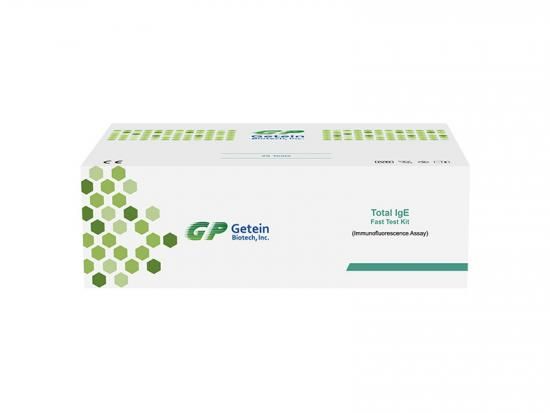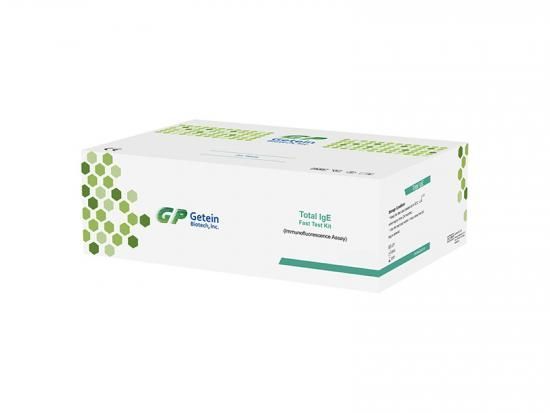Getein mAlb Fast Test Kit is used as an aid in the detection of kidney diseases and increased cardiovascular risk in diabetic nephropathy.
Intended Use
The mAlb Fast Test Kit (Immunofluorescence Assay) is intended for in vitro quantitative determination of microalbuminuria (mAlb) in urine. An elevated mAlb concentration below the proteinuric level has long been recognized as a marker of kidney disease and increased cardiovascular risk in diabetic nephropathy.
About mAlb
Albumin is one of the major plasma proteins. Under normal conditions, albumin molecules are too large to cross the glomerular basement membrane, resulting in very low concentrations of albumin in urine. Damage to the glomerular basement membrane alters its permeability, allowing albumin to enter the urine. Sustained elevation of urinary albumin concentration is called microalbuminuria (mAlb), which arises from increased leakage through the glomerular basement membrane.
Contents
- For Getein 1100
- Package specifications: 25 tests/box, 10 tests/box
- mAlb test card in a sealed pouch with desiccant
- Disposable pipette
- User manual: 1 piece/box
- SD/RFID card: 1 piece/box
- For Getein 1600
- Package specifications: 2×24 tests/kit, 2×48 tests/kit
- Sealed cartridge with 24/48 Getein mAlb test cards
- User manual: 1 piece/box
Materials required for Getein 1600:
- Sample diluent: 1 bottle/box
- Box with pipette tips: 96 tips/box
- Mixing plate: 1 piece/box
Note: Do not mix or interchange different batches of kits.
Specifications
Test Item:
mAlb
Sample:
Urine
Method:
Immunofluorescence Assay
Storage Condition:
4-30℃
Detection Range:
10.0~200.0 mg/L
Test Time:
3 min
Cut-off Value:
20.0 mg/L
Shelf Life:
24 months
Applicable Devices
- Getein 1100 Immunofluorescence Quantitative Analyzer
- Getein 1600 Immunofluorescence Quantitative Analyzer
Clinical Applications
- Marker of early renal damage.
- Valuable tool for detecting cardiovascular risk in diabetic nephropathy and hypertensive nephropathy.
- Aid in immediate intervention for diabetics to slow the progression of disease.
- Detection of pregnancy-induced renal disease.
- Important indicator in diagnosing glomerular injury.

